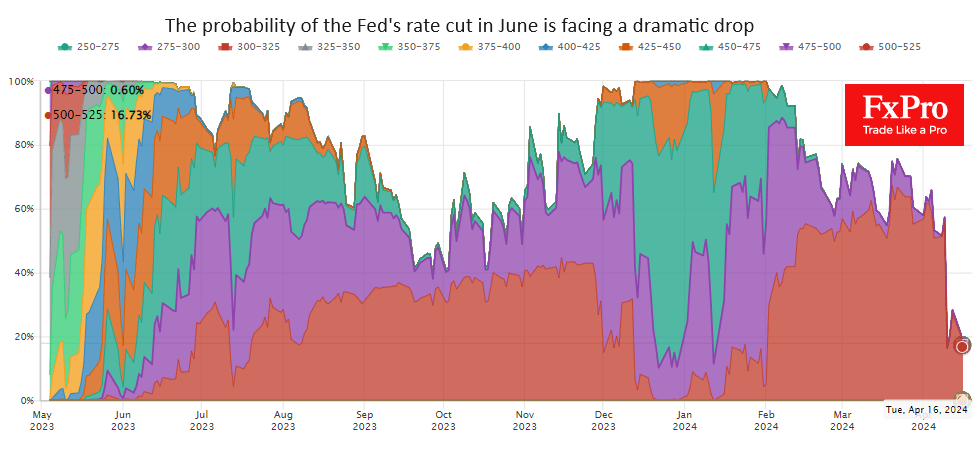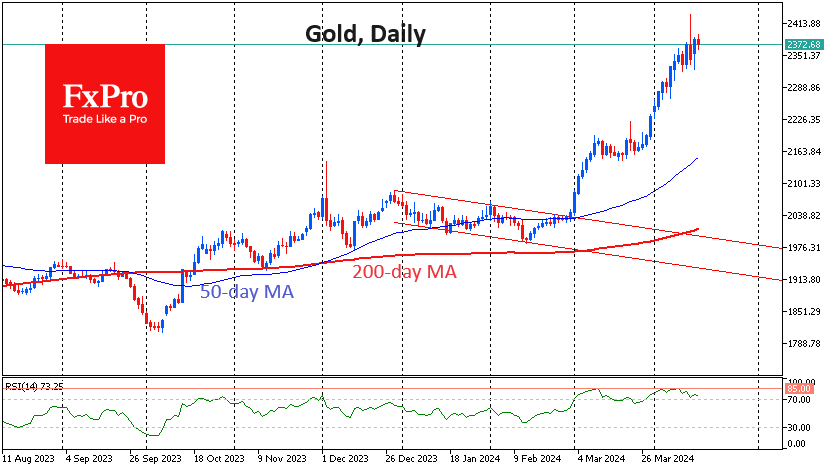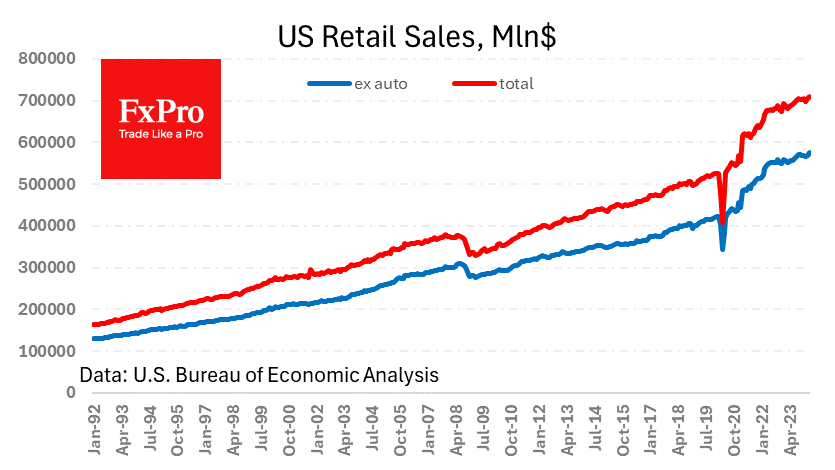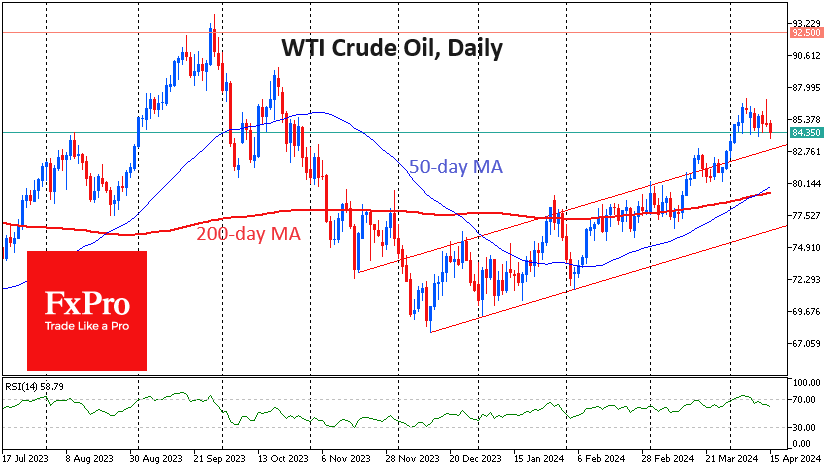Is the loud market selloff just the beginning?
September 04, 2020 @ 12:40 +03:00
The financial markets were pretty turbulent on Thursday. The Nasdaq100 lost 5% in one day, the biggest selloff since early June and the fifth largest one-day drop so far this year.
The S&P500 and Dow Jones 30 lost noticeably less, as the bulk of sales were concentrated in tech stocks, which had previously dragged up the entire market.
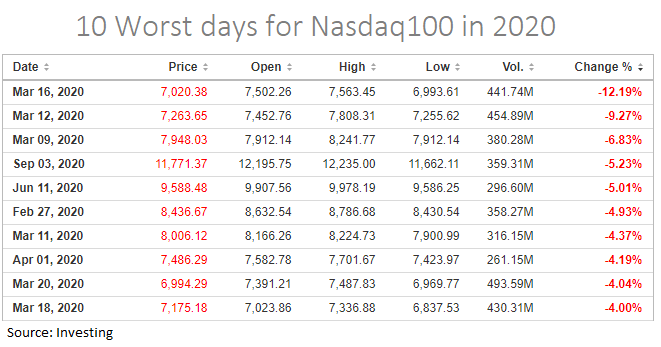
The shares of Apple collapsed by 8% in a day, AMD, the second-largest by trading volume stock in Nasdaq 100 lost 8.5% of its capitalization, Alphabet sank 5%. The current movement, despite its size, should not be exaggerated. Prices of the mentioned shares have returned to the levels of two weeks ago, remaining deeply in green zone so far this year and even over the last month.
The drop overnight can easily be attributed to the rebalancing of portfolios that funds do before the end of the next financial year. They sell those shares that have risen sharply in price in recent months and have gained an unnecessarily high share in portfolios that are often restricted.
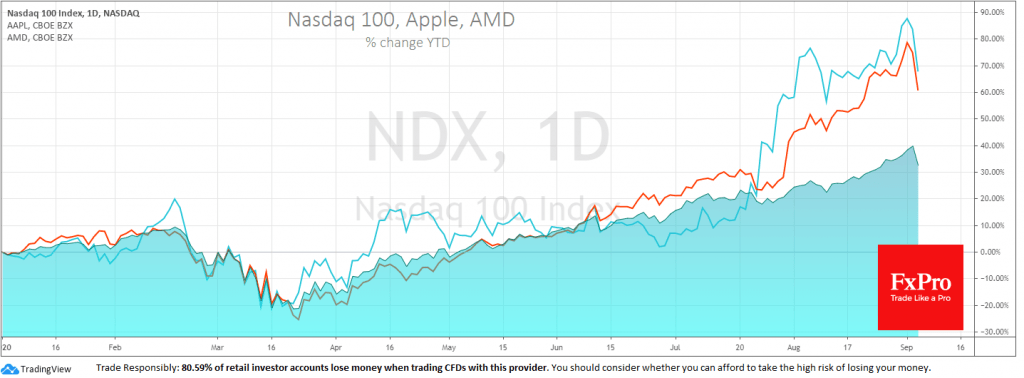
If this is the case, it should be a temporary phenomenon. It should not harm other sectors of the market or give an upper hand to the most previously suffering value and cyclical stocks.
The sale yesterday was also reinforced by robots who placed orders to close long positions to take profits in the light of the prolonged overbought market. Because of this, the strong decline had an even bigger slide.
This increases the focus on what the next move in the markets will be like. It is widely believed that retail investors drove a significant part of the recent IT rally in an attempt to join the powerful market move. These are speculative, not investment positions. Retail investors can very quickly change their love into contempt if it does not see the expected growth rates of the selected stocks and indices.
The monthly labour market report, which comes out later today, can both support a sale and regain interest in stocks. The worrying notes of the ADP report, which noted a sharp slowdown in job recovery, were overshadowed by relatively optimistic weekly claims figures.
We must also not lose sight of the fact that 11.5 million more people receive weekly unemployment benefits than in March this year, which promises to both reduce income levels and undermine confidence. It may turn out that, together with the rebalancing on the part of the funds, the stars of the market will be pressured to sell from retail investors who, simply put, will start selling shares to meet daily needs in the light of the end of support programmes.
The FxPro Analyst Team




